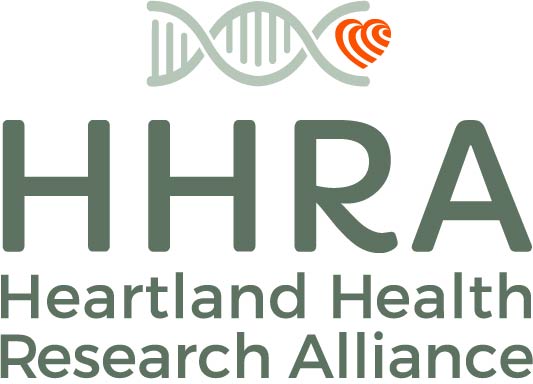One of the main sources of pesticide exposure is through the diet. It is critically…

A New Day Dawning at EPA? New Memo Raises Hope
Reporter Emily Unglesbee with DTN/Progressive Farmer has done solid reporting for years now on the trials and tribulations of dicamba herbicide and the XtendiMax GMO soybean and cotton seeds it has been applied on since 2016.
Dicamba is one of the herbicides of intense interest to The Heartland Study science team. It is known to cause reproductive problems and certain birth defects. It has been classified as a possible human carcinogen, and likely will soon be upgraded to probable human carcinogen because of recent findings showing association with cancer from the National Cancer Institute.
The use of dicamba throughout the Heartland has skyrocketed since 2016, as a result of the approval of the GMO seeds engineered to tolerate over-the-top applications of dicamba. Our HHRA interactive herbicide use tables capture clearly just how rapidly dicamba use has grown wherever corn, soybeans and cotton make up a significant share of harvested cropland.
But problems grew in step with use. Dicamba is a highly volatile herbicide. It moves up into the air, especially when it is hot and humid. It can move miles, even hundreds of miles.
The crops, trees, vineyards, shrubs and backyard gardens where it comes back down to earth often pay a price. In short, dicamba is the acid rain of the plant world. It is a plant mutagen and is especially damaging when it lands on a crop during flowering.
On March 12, 2021, Unglesbee broke a troublesome but not unexpected story entitled “EPA: Politics Tainted Dicamba Decision — EPA Ignored Science in Past Dicamba Decision, New EPA Official Says.” It describes a message just sent to EPA employees by Michal Freedhoff, the Acting Assistant Administrator for EPA’s Office of Chemical Safety and Pollution Prevention (OCSPP). In it, Freedhoff bluntly states “I am aware that political interference sometimes compromised the integrity of our science,” and goes on to list specific examples, with the first being the 2018 registration of dicamba herbicides.
The rest of the memo sent by Dr. Freedhoff speaks for itself. I have included it in its entirety at the end of this blog.
OCSPP is the part of EPA that oversees the Office of Pesticide Programs (OPP). I have worked with and watched OPP strive to identify and mitigate high-risk pesticide uses for almost 50 years. Over this span of time, the last four years stands out as a troublesome outlier during which it seemed almost no request from any pesticide registrant was deemed too outrageous to act upon.
Did you hear that there is even an effort afoot to bring back aldicarb??? The controversial insecticide was banned in 2010 due to “unacceptable dietary risks, especially to infants and young children.”
I hope Dr. Freedhoff’s memo signals a rebirth of commitment to science and integrity in decision making in OCSPP. There is much lost time, and ground, to make up.
—Dr. Charles Benbrook, HHRA Executive Director
Below is the EPA Memo in full. View as a pdf here.

Dear OCSPP Colleagues – By now, I’ve been a part of the OCSPP team for nearly seven weeks, and I continue to be deeply impressed by and grateful for your integrity, professionalism, and unmatched commitment to public service and the public good.
I have been particularly pleased to see OCSPP career professionals speak strongly in support of Scientific Integrity. As you know, science is the backbone of EPA. Scientific integrity, in turn, is a bedrock principle for President Biden, Vice President Harris, our incoming Administrator Michael Regan, and me. Scientific Integrity ensures that our science is sound and that we earn and maintain the public’s confidence in our decision-making. I affirm my commitment to you to act with scientific integrity. I expect you to do likewise when working with me and with each other.
Our work as a science-based regulatory office requires us to embody scientific integrity in many contexts. For example, I expect:
• Robust exchange of scientific views, with differing scientific opinions expressed in writing early and shared with mangers throughout the process, including me.
• Truth-telling in briefings: what do I and other managers need to know?
• Courage to point out errors early in the process and a welcoming attitude by managers and peers to those communications.
• Respect for the role of science in risk assessments and the role of policy and law in risk management decisions. This requires the assurance that risk management considerations aren’t the driving influences during the risk assessment phase, and it requires respect among scientists when difficult policy choices are ultimately made.
• Integrity of scientific products.
• Clear, real-time communication with scientists to explain senior scientists’ changes to draft scientific products and an opportunity for scientists to express a different view.
• Understanding that, as a regulatory office, we also need to be mindful of statutory and other deadlines.
• An environment – led in the first instance by OCSPP managers – where everyone feels comfortable identifying errors, asking questions, and expressing differing scientific opinions, all without fear either of retaliation or being denigrated for speaking up.
• An environment free from political interference in the science.
Over the past few years, I am aware that political interference sometimes compromised the integrity of our science. Here are examples:
2018 Dicamba Registration Decision: In 2018, OCSPP senior leadership directed career staff to: (1) rely on a limited data set of plant effects endpoints; (2) discount specific studies (some with more robust data) used in assessing potential risks and benefits; and (3) discount scientific information on negative impacts. This interference contributed to a court’s vacating registrations based on these and other deficiencies, which in turn impacted growers’ ability to use this product.
TCE: White House staff directed OCSPP career staff to alter the draft TCE risk evaluation to change the point of departure used for making determinations of risk to a less sensitive endpoint. While the risk evaluation included a description of the more sensitive endpoint (fetal heart malformations), it was no longer used to determine whether there is unreasonable risk from TCE. Unreasonable risks were nevertheless identified for most uses of TCE, but the magnitude of the risk from exposures to TCE would have been greater had EPA relied upon the fetal cardiac defect endpoint that had been used in previous EPA peer-reviewed assessments.
PFBS Toxicity Assessment: The PFBS Toxicity Assessment that was recently removed from EPA’s website included conclusions purporting to reflect science when in fact they were the product of biased political interference directed in part by OSCPP’s past political leadership. That interference undermined the agency’s scientific integrity policy and eroded the trust that the American public has in EPA, the quality of our science, and our ability to protect their health and the environment.
This is a new day, about communication, trust, transparency and the importance of science in our regulatory decision-making process. All of us are responsible for ensuring the scientific integrity of our work. All of us are responsible for creating a work environment where everyone feels free to speak up without fear.
To this end, I encourage you to read the Science Integrity Policy. I encourage you to browse the Office of Scientific Integrity intranet page and refresh your knowledge by studying their resources and whiteboards. And please don’t hesitate to contact OCSPP’s Deputy Scientific Integrity Officer, Carol Ann Siciliano, at siciliano.carolann@epa.gov or (202) 564-5489, or EPA’s Scientific Integrity Officer, Francesca Grifo at (202) 564-1687 (office) or (202) 657-8575 (mobile).
I also encourage you to attend the OCSPP Scientific Integrity Training series being launched by Carol Ann. You’ll see more information about that shortly. The first session will feature a presentation and Q&A with Francesca Grifo. The second session will talk about ways to express and resolve Differing Scientific Opinions (DSO). Explore the DSO toolkit here. We also plan a training on Whistleblower protections. Get to know your rights here. More training subjects will follow. Just as important, let’s make Scientific Integrity part of our daily work and our daily conversations. You can count on me. And I know that I can count on you – managers and staff, scientists and non-scientists – to do the same.
All the best,
Michal
Michal Freedhoff, Ph.D.
Acting Assistant Administrator
Office of Chemical Safety and Pollution Prevention
U.S. Environmental Protection Agency



